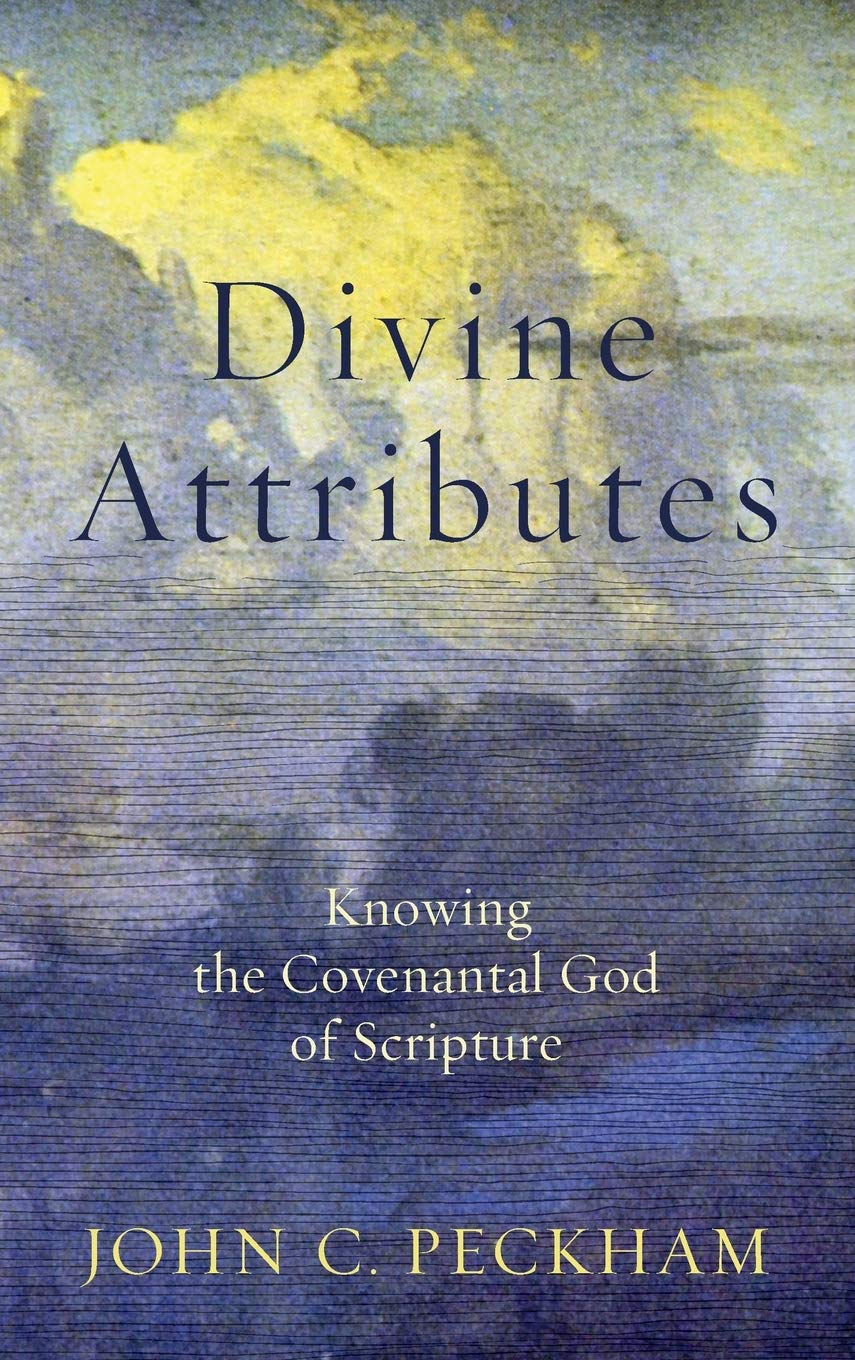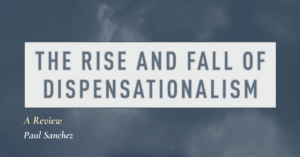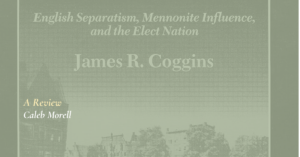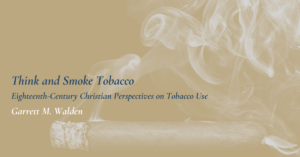Divine Attributes: Knowing the Covenantal God of Scripture. By John C. Peckham. Grand Rapids: Baker Academic, 2021. 336 pages. Paperback. $29.99.
John C. Peckham is professor of theology and Christian philosophy at Andrews University, from whence he also earned his Ph.D. He has published a number of books, most of which have focused on the doctrine of God. His book on theological method, Canonical Theology: The Biblical Canon, Sola Scriptura, and Theological Method, received notable acclaim and was the subject of its own panel at the annual meeting of the Evangelical Theological Society (2017). The book at hand is somewhat of a follow up to his recent The Doctrine of God: Introducing the Big Questions, which was written to be an introductory text on the doctrine of God. In that book, Peckham surveys multiple models of God and the divine attributes in descriptive fashion. Divine Attributes is Peckham’s own constructive account of the divine attributes.
Peckham begins his book with a brief introduction to his subject matter and with a few words on his methodology for the project. Most of the Introduction provides a summary of some of the many characteristics predicated of God in Scripture, which provides an initial outline of the structure of his book.
The subject of Peckham’s first chapter is “The God of Scripture and the God of the Philosophers.” By “the God of Scripture,” Peckham simply means the portrait of God as described in the books of the Old and New Testaments. By “the God of the Philosophers,” he is referring to multiple models of God that have been proposed in the history of the philosophy of religion. These include “strict classical theism,” process theism, open theism, “moderate classical theism,” and “the God of Greek philosophy” (20-27). He terms the model that he develops throughout the book as “covenantal theism,” which emphasizes the real covenant relationships that God enters into with his creation. Covenantal theism is a version of what he previously referred to as “moderate classical theism.” Peckham then provides a few words on theological method and “canonical theology” (29-37).
The contents of the doctrine of God, he claims, need to meet two conditions in order for Christians to affirm them: 1) they must enjoy adequate biblical warrant, and 2) they must be systematically coherent. Though doctrine done well will also consult the important voices of the church’s heritage, being faithful to this heritage is not as important as meeting these two conditions. By “canonical theology,” Peckham means “Scripture is a unified corpus of writings that God has commissioned as the uniquely normative rule of faith and practice and the final norm of theological interpretation, to be understood in subjection to guidance by the Holy Spirit” (29, italics original). By emphasizing that the canon is the final norm of theological interpretation, he is insisting that the canon does not require an authoritative interpretative tradition.
Scripture, he claims, “must be normative with respect to one’s doctrinal and metaphysical frameworks” that they bring to the task of interpretation (31). This means that readers’ hermeneutical horizons of understanding must ultimately be subjected to the authority of what Scripture itself claims, and these horizons include the church’s tradition. If we require certain metaphysical and ecclesiastical lenses to properly interpret Scripture, then we functionally submit Scripture to the authority of those lenses. If Scripture is to be the final authority on matters theological then it needs to be capable of critiquing and correcting our hermeneutical and metaphysical frameworks (32-33). Thus, Scripture must be exegeted and interpreted on its own terms.
Peckham addresses multiple divine attributes per chapter in chapters 2-6. He discusses the attributes of aseity, immutability, and “qualified passibility.” By “aseity,” Peckham means that God exists of himself and relies on nothing outside of himself for his existence or essential properties. Implied in God’s aseity is God’s necessity, which claims that God is a necessary being who could never not exist. Peckham argues for a limited account of divine immutability. Whereas the classical tradition has denied both intrinsic and extrinsic change in God, Peckham is only interested in denying the former. The God of the Bible, he argues, experiences extrinsic, or relational, changes frequently as a result of his entering into covenants with Israel and the church. While God does undergo relational changes, he does not undergo changes in his essential properties. By “qualified passibility,” Peckham means that God does have changing emotions and is able to suffer, but he does not do so essentially. Rather, he is passible only because he has covenanted to be so.
God’s attributes of omnipresence and eternity are the subjects of chapter 3. By “omnipresence,” Peckham means that God is present to all places and times in his fullness. Though God is essentially omnipresent in that he is an incorporeal being, he is also uniquely present to certain people at certain times. Though God is incorporeal his being is compatible with corporeality, otherwise phenomena such as the incarnation would be logically impossible. When Peckham claims that God is “eternal,” he means that God has no beginning and no end. He rejects the classical understanding of eternity as atemporal on the grounds that it does not enjoy biblical warrant. Throughout Scripture, he argues, God is depicted as experiencing temporal succession and enjoying temporal location. The hermeneutical frameworks used to interpret Scripture to claim that God is atemporal, he argues, are not derived from Scripture itself but are imposed onto Scripture. Scripture itself, however, affirms an eternal yet temporal God, which is incompatible with the atemporal God of strict classical theism.
Peckham takes up God’s omniscience in chapter 4. By “omniscience,” Peckham means “that God infallibly knows all that can be known” (111). This might also be understood as God knows all true propositions. He discusses competing models of divine foreknowledge, namely those that take up the question of whether God enjoys “exhaustive definite foreknowledge” (114). These models include determinism, open theism, simple foreknowledge, and Molinism. He argues that Scripture affirms that God enjoys exhaustive definite foreknowledge, which rules out open theism. However, Peckham also argues that Scripture teaches that human agents enjoy libertarian free will, which rules out determinism. Though he does not definitively take a position, he seems most sympathetic to Molinism and its doctrine of middle knowledge.
In chapter 5, Peckham discusses the attribute of omnipotence and God’s providence over creation. By “omnipotent,” Peckham means that God is able to perform any action that is logically possible and consistent with his perfect moral nature (145-47). He rejects the model of omnipotence proposed by process theism, noting that its claims that God “cannot causally determine history” do not enjoy biblical warrant. Rather, Scripture explicitly depicts God as guiding and determining the course and direction of history. However, this does not entail that God causally determines every event in history, particularly the events of moral agents exercising their ability to make libertarian free choices. God can determine history in such a way that he does not infringe upon libertarian creaturely freedom. Like in chapter 4, he draws from the Molinist understanding of divine foreknowledge and providence to make his argument. Because God has covenanted to give his moral creatures libertarian free will, sometimes God’s desires and will are frustrated by said creatures’ choices. This is not to say, however, that God did not know what actions his creatures would freely choose to perform. God knew prior to creation what his moral creatures would freely choose to do, but he also elected to allow them to make these choices though he would prefer them to do otherwise. Such is the case when moral agents choose to sin. However, God is still sovereign and omnipotent and is able to direct history to his desired end despite the sinful choices of his moral creatures.
Peckham turns to God’s moral perfection and the alleged problem of evil in chapter 6. In claiming that God is morally perfect, or omnibenevolent, Peckham means that God is incapable of performing any sort of immoral or unloving action since such actions would be contrary to his essential morally perfect nature. Such benevolence is demonstrated in God’s love for himself and for his creation and in his faithfulness to those with whom he has covenanted. That evil exists is not systematically inconsistent with God’s omnibenevolence. Scripture is aware of the apparent tension between the existence of both God and evil (181-82). He discusses some previous arguments against the logical problem of evil, namely skeptical theism and Alvin Plantinga’s free-will defense. However, Peckham advocates for his constructive theodicy that he developed in one of his previous books, Theodicy of Love: Cosmic Conflict and the Problem of Evil (Baker Academic, 2018). The Bible, he argues, depicts Satan as the author of sin, and there exists between he and God a cosmic conflict. God, Peckham argues, has allowed Satan and his demons to commit certain evils at certain times towards God’s creatures. As a result, God has agreed to a sort of “rules of engagement” to allow Satan to carry out his evil plans. In so doing, God allows space for his free creatures to freely choose to love and worship him despite the evil in the world (189-206). Peckham draws heavily from the conflict between God and Satan in Job in developing this model. At his designated time, however, God will rid the world once and for all of Satan, his demons, and all evil. He refers to this model of theodicy as “a theodicy of love.”
The doctrine of the Trinity is the subject of chapter 7. The essential claims of the doctrine of the Trinity are that God is a single essence and three persons. Following the Athanasian Creed, he affirms that the Father is God, the Son is God, the Holy Spirit is God, but the Father is not the Son or the Spirit, the Son is not the Father or the Spirit, and the Spirit is not the Father or the Son. Peckham understands a “person” to be “a subject with self-consciousness, reason, and will” (217). As such, he advocates for a social model of the Trinity. Each person is coequal, coeternal, and the one true God. Peckham also denies that there exists any form of subordination, be it ontological, functional, or authoritative, within the imminent Trinity. He does, however, question—though he does not necessarily reject—the eternal relations of origin between the triune persons (that the Father eternally begets the Son and the Father and Son together eternally spirate the Spirit). His concern here is primarily biblical in that, he argues, the doctrine of the eternal processions does not seem to enjoy biblical warrant. However, Peckham claims that his conclusion here is not meant to be offered as “a dogmatic conclusion” (237). Peckham instead prefers to describe the imminent relations between the divine persons as eternal relations of love rather than relations of origin. He also briefly touches on the debates surrounding the doctrine of divine simplicity (DDS), claiming that the strict versions argued for by the patristic fathers and the medieval theologians, namely Augustine, Anselm, and Thomas Aquinas, neither enjoys biblical warrant nor systematic coherence (240-41). The final chapter of the book, chapter 8, provides a concluding sketch of the covenantal theism that Peckham has been developing throughout the book.
Peckham has provided us with a well-written and Bible-saturated account of the divine attributes. The book has much to commend. First, most evangelicals will appreciate his emphasis on Scripture as the supreme authority. Such an emphasis is consistent with the patristic and medieval claims about the authority of Scripture, and it is especially consistent with the claims of the protestant reformers. However, many Christians, evangelicals and protestants included, will take issue with the claim that an authoritative tradition, such as that enshrined in the ecumenical councils and creeds, is not needed to rightly interpret Scripture. Since the early centuries of the patristic period, the Christian tradition has emphasized the importance of the church’s tradition, often referred to as the rule of faith, for rightly interpreting Scripture. Peckham’s argument, however, makes some interesting points. Suppose that we must interpret Scripture through the lens of the rule of faith. At this point, we seem to have made the rule of faith equally as authoritative as Scripture. If Scripture must be interpreted by the rule of faith in such a way that is consistent with the rule of faith, how is Scripture ever able to critique the rule of faith? Is it not at least logically (or even conceivably) possible that the rule of faith itself is based off a misinterpretation of Scripture? To be clear: I am not arguing that the rule of faith is erroneous; rather, I’m simply questioning the potential and ability of intersubjective human judgments to err. Peckham’s point is well taken: If the tradition is required to properly interpret Scripture, then there does not seem to be a plausible state of affairs wherein Scripture could ever correct the tradition, thus implying that it is not the supreme authority in doctrinal matters.
Not only does Peckham affirm the supreme authority of Scripture in doctrinal development but he practices it as well. Throughout each chapter, Peckham substantiates his claims with plethora upon plethora of Scriptural citations. Some might allege that this is just another case of biblical proof texting. However, this is something that every theologian does who aims to submit their theology to the authority of Scripture. The question is not whether we should proof text, but whether we will proof text well. When authors proof text from Scripture without paying attention to the literary or historical contexts in which their text of choice was written then there is a large margin for hermeneutical error. Peckham, however, does pay careful attention to both the literary and historical contexts surrounding his chosen proof texts. Though one will not find lengthy treatments of said contexts in the main text of the book, they will find references and content-footnotes in each chapter wherein Peckham engages with some of the best of contemporary biblical scholarship and commentary. Not only this, but he engages recent quality work by biblical theologians as well, such as the projects of N. T. Wright, Gerhard von Rad, Bruce Waltke, John Goldingay, James D. G. Dunn, and John Walton.
In addition to his insistence on doctrines enjoying sufficient biblical warrant, Peckham rightly emphasizes the importance of systematic—logical—coherence in doctrinal development. Simply put, if a doctrinal proposition is logically incoherent, no matter how much historical attestation said doctrine enjoys, then no one should believe it. No one should be willing to accept square circles, married bachelors, or any other contradiction. The logical laws of identity, excluded middle, and non-contradiction are essential tools, not just for philosophical theologians, but for systematic and biblical theologians as well. As a result of this emphasis, Peckham interacts with some of the best of contemporary philosophical theology, especially those representing analytic theology and analytic philosophy of religion. These interlocutors include, but are not limited to, Ross Inman, R. T. Mullins, William Lane Craig, Thomas McCall, William Hasker, Paul Helm, Katherin Rogers, Eleonore Stump, Alvin Plantinga, Brian Leftow, and Richard Swinburne. Many contemporary theologians have been reluctant to engage the analytic tradition due to various alleged reasons, though most of these reasons assume particular properties of analytic theology that analytic theology itself does not always exemplify. It is refreshing to see evangelical systematic theologians engaging the rigorous and fruitful work that has been produced in recent analytic theology.
There are several other positive aspects of Divine Attributes, but I need to take some space to point out an area of weakness, namely Peckham’s lack of engagement with historical theology. Though there are some mentions of significant historical figures, such as Gregory of Nyssa, Augustine, Thomas Aquinas, Boethius, and Anselm, they are just that—mentions. Though Augustine receives more treatment than the others, most of Peckham’s engagement with his theology is relegated to the footnotes. Divine Attributes would have benefitted tremendously had it provided critical engagements with the doctrines affirmed by these classical thinkers, especially since Peckham departs from their views on significant doctrines such as simplicity, immutability, impassability, and atemporal eternity. Granted, he does engage contemporary theologians and philosophers of religion who do affirm the classical doctrine of God; however, there is something to be said for taking the time to engage the primary historical sources on their own terms. If nothing else, such an engagement could be used to demonstrate how the differing theories of the divine attributes have developed over time, which Peckham could then use to show how doctrine does not develop in a vacuum and that the church has a long history of disagreeing with those previous voices in the tradition, correcting them, and then moving forward. Though this is not a crippling weakness per se, it is one that one would hope to see corrected, perhaps for a future second edition of the book.
Overall, Peckham has written a well-informed, biblically saturated, and carefully argued model of the divine attributes. Students and scholars who are involved in contemporary discussions over the doctrine of God and the Trinity would do well to engage this book, specifically where it invokes the Scriptural witness to provide sufficient biblical warrant for its conclusions—particularly those that depart from the classical tradition. This book would also serve well undergraduate and graduate students of theology, biblical studies, or religious studies, though I would recommend combining it with Peckham’s previous book, The Doctrine of God: Introducing the Big Questions. I would also recommend this book, combined with The Doctrine of God, to lay persons who are interested in better understanding the doctrine of God and the conversations that take place therein. Though it would benefit greatly from more historical-theological engagement, Peckham’s Divine Attributes is a strong contribution to the continuing discussions within the doctrine of God and the Trinity.
Editors Note: The London Lyceum confesses the 2LCF. Wherein Dr. Peckham rejects the 2LCF, we find reasons for concern and the need for revision. However, it is not the mission of the London Lyceum to always publish work that agrees with our confession of faith. We seek to generate thinking and foster an intellectual culture of charity, curiosity, critical thinking, and cheerful confessionalism.
Author
-

Andrew Hollingsworth (PhD, New Orleans Baptist Theological Seminary) is Assistant Professor of Theology and Christian Philosophy, and Online Instructional Design Specialist at Brewton-Parker College in Mt. Vernon, GA. He is co-editor with R. T. Mullins of The Incarnation: Four Views (Cascade, forthcoming), editor of Theology for the Future: The Enduring Promise of Wolfhart Pannenberg (Lexington Books/Fortress Academic, 2021), and author of God in the Labyrinth: A Semiotic Approach to Christian Theology (Wipf & Stock, 2019). His research has appeared in Neue Zeitschrift für Systematische Theologie und Religionsphilosophie, Philosophia Christi: The Journal of the Evangelical Philosophical Society, Irish Theological Quarterly, The Journal of Biblical and Theological Studies, The Global Anglican, and The Global Journal of Classical Theology.



